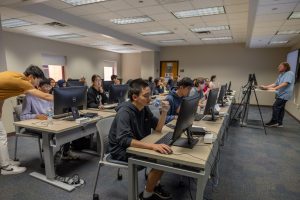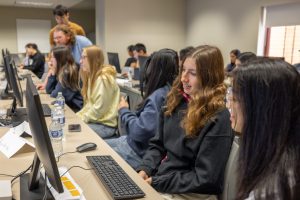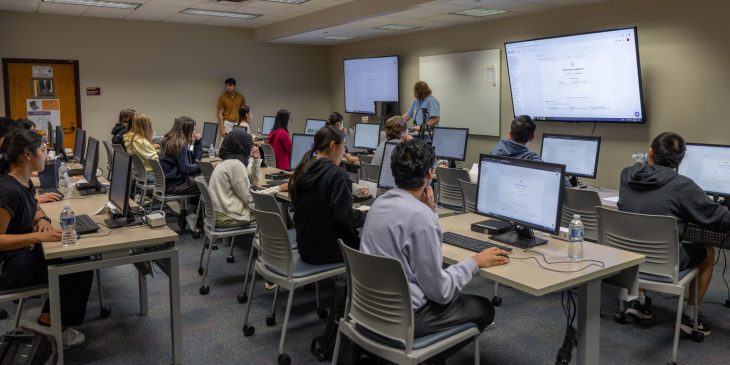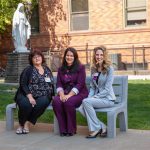Artificial Intelligence is today where the Internet was a generation ago. The teenagers of the late 1990s and early 2000s were among the first to enter adulthood with a working knowledge of the internet. A quarter-century later, the young people of today are learning to harness the power of AI, which is increasingly woven into the fabric of almost everything.
That’s why the University of Pittsburgh and UPMC developed a free week-long summer camp for high schoolers and recent graduates, introducing students to AI concepts with a focus on computer vision, algorithms currently used in self-driving cars, surveillance systems and medical image interpretation.
“We’re helping to develop the AI workforce of the future,” said Ahmad Pahlavan Tafti, Ph.D., assistant professor of health informatics in the School of Health and Rehabilitation Sciences (SHRS). “It’s really important for teenagers to get their hands dirty early, so they can better learn what we mean by safe, unbiased, responsible AI.”

Nearly 30 high school students participated in the 2024 AI Summer School, a joint project of the Pitt School of Health & Rehabilitation Sciences and the Pitt/UPMC Computational Pathology and AI Center.
Nearly 30 students participated in the AI Summer School camp, held in late June on Pitt’s campus. The students used Python, a high-level computer programming language, along with real de-identified medical imaging – of knee joints, blood, breast tissue and other body parts – to experiment with object detection and localization. These are the processes by which AI identifies pedestrians in the roadway or tumors in human organs.
“AI is going to take over a lot of the things we do in our daily lives,” said Katherine Ding, a rising junior from Mt. Lebanon. “It’s important that we understand where it’s going and what it’s capable of.” Ding is currently working on a science fair project about neural networks, a machine learning model that mimics the human brain, and took the course to deepen her knowledge on the topic.
Rising junior Alexandra Tehoke traveled from Cleveland, alerted to the camp by her uncle, a Pitt professor. She’s considering a career in cybersecurity and wanted more experience with AI.
“There are so many opportunities within computer science and AI, and I’m trying to cover all my bases,” Tehoke said. “I hadn’t considered the medical field, but now I’m interested.”
Tafti said he was surprised to see students from outside the Pittsburgh area taking advantage of the course. Fae Negoro found the course during an internet search and traveled all the way from Jakarta, Indonesia with her father for the opportunity.

Delia Graham of Pittsburgh (left) and Katherine Ding of Mt. Lebanon participated in the 2024 AI Summer School, a joint project of the Pitt School of Health & Rehabilitation Sciences and the Pitt/UPMC Computational Pathology and AI Center.
“AI can’t stand on its own, it has to be combined with another field,” said Negoro. Inspired by her mother’s career as a physician, the teen said she hopes to use AI to solve medical problems “to help my country and, hopefully, the rest of the world.”
The course is a joint project of the new Computational Pathology and AI Center of Excellence (CPACE), a collaboration of Pitt and UPMC, and SRHS, with support from the IEEE Computer Society.
“We want to take away the fear that currently surrounds the idea of AI,” said Hooman Rashidi, M.D., M.S., Pitt’s associate dean of AI in medicine and executive director of CPACE. “Everything in the future will be AI-enhanced, and those who understand it will be the ones to determine how it is used. We are training the next generation of innovators.”









